Brennon Bortz is an American researcher, composer, and doctoral candidate at Virginia Tech in Blacksburg, Virginia. He is particularly interested in creative and innovative applications—specifically musical—of affective technologies.
For his musical training, Brennon studied composition, conducting, and vocal performance. As his academic career progressed, his attention was drawn toward computer music and interaction design. While he initially began his doctoral work in sonic arts at Queen’s University Belfast, Brennon later transferred into the Ph.D. program in computer science at Virginia Tech. His current research has three major emphases: understanding and addressing the unique methodological difficulties posed by large-scale, multi-disciplinary, affective research; characterizing the dynamic relationships between musical features and human affective response, particularly with respect to relaxation; and exploring effective interactions using musical stimuli to passively and actively assist in arousal regulation.
Beyond his research, Brennon also works as a senior software engineer, and he enjoys rock climbing, photography, travel, whiskey, and home-brewing.
Website: http://www.brennonbortz.com

José Miguel Candela
Bachelor of Music from Universidad de Chile. Thanks to a CONICYT scholarship, he holds a Master of Music and Technology from Pontificia Universidad Católica de Chile. As a composer, he has created music for film, theater and especially contemporary dance. He stands out in the field of electroacoustic music, where he has edited three CDs-works to this date: “TTK – 81 micropiezas para saxofón y electroacústica” with Miguel Villafruela (2008), “Ciclo Electroacústico Salvador Allende Gossens” (2009) and “4 Piezas Acusmáticas por los Derechos Humanos” (2016). His music has been played in Chile and various parts of America and Europe, and it has been edited in several compilation CDs, both in Chile and abroad. He was coordinator of the Chilean Electroacoustic Community, an organization he founded with other composers in 2002. For six years, he was founder and organizer of the Ai-Maako International Electroacoustic Music Festival in Santiago de Chile. He is currently an academic in the Department of Dance of Universidad de Chile.
Website: http://candelajm.blogspot.cl
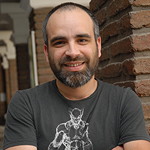
Claudio Fuentes
Lecturer and Researcher. Bachelor of Philosophy. Master in Logic and Philosophy of Science. Doctor (c) in Logic and Philosophy of Science, USAL. Director of the Center for Argumentation and Reasoning Studies (CEAR) of the Faculty of Psychology of Universidad Diego Portales. His main line of research is situated cognition and from this perspective, he takes part in various research projects in areas such as music, argumentation, biology and architecture.

Michael Gurevich
Michael Gurevich is Assistant Professor of Performing Arts Technology at the University of Michigan’s School of Music, Theatre & Dance, where he teaches courses in physical computing and electronic music performance. His interdisciplinary research employs quantitative, qualitative, humanistic, and practice-based methods to explore the aesthetic and interactional possibilities that can emerge in performance with computer systems. Other research areas include networked music performance, bioacoustics, and the aesthetic and intellectual history of computer music. His creative practice explores many of the same themes, through experimental composition, sound installation, and interaction design. Prior to the University of Michigan, Professor Gurevich was a Lecturer at the Sonic Arts Research Centre (SARC) at Queen’s University Belfast, and a research scientist at the Institute for Infocomm Research in Singapore. He holds a Bachelor of Music from McGill and an M.A. and Ph.D. from the Center for Computer Research in Music and Acoustics (CCRMA) at Stanford, where he also completed a postdoc. Professor Gurevich is an author and editor in the New Interfaces for Musical Expression (NIME), computer music and human-computer interaction communities. He was Music Chair for the 2012 NIME conference in Ann Arbor, and is Vice-President for Membership of the International Computer Music Association.
Website: http://www.michaelgurevich.com

Javier Jaimovich
Javier Jaimovich is a researcher, sound artist and Assistant Professor in the Department of Music and Sonology of the Faculty of Arts of Universidad de Chile interested in working with the intersections between art, science and new technologies. His research focuses on studying and characterizing the physiological responses of performers and audiences to music with the purpose of designing and generating new and meaningful forms of musical interaction. For this reason, his artistic work has to do with designing interactive sound systems in various environments, whether sound installations, musical performances, dance or film. At Universidad de Chile, Prof. Jaimovich is project manager of research projects funded by CONICYT, participates in interdisciplinary creation projects and teaches undergraduate and postgraduate courses in Sound Engineering and Composition.
A B.A. in Music Technology from Universidad de Chile, Javier started working in this institution after completing his undergraduate studies. In 2007, he was granted a scholarship to study a master’s degree at the prestigious Sonic Arts Research Centre (SARC) in the United Kingdom, where he graduated first of his class and obtained a scholarship from the British government to pursue a PhD at the same research center, where he also taught undergraduate and postgraduate courses. Dr. Jaimovich’s work is highly interdisciplinary and includes research projects from the European Union (SIEMPRE), as well as artistic creation projects.
Website: http://javier.jaimovich.cl
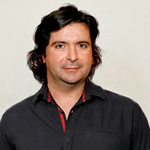
Rolando Jara
Playwright, Academic, PhD in Literature, M.A. in Literacy and B.A. in Aesthetics. As a playwright, he has been selected on five occasions for the National Drama Exhibition and has premiered his plays in Chile, Germany, Argentina and Spain. Some of his prominent theater pieces include Costas de Hielo (2001), La Bilis Negra (2002), Proyecto/Fausto (2003), Polen (2004), Calias, Tentativas en torno a la Belleza (presented in the Schillertage Festival in Mannheim in 2007) and Hombre acosado por demonios ante un espejo (2010).
In the field of music, it is worth mentioning that he wrote the text for the contemporary opera Lamentaciones (2014), with music by composer Cristian Morales Ossio and premiered with the direction of Luis Ureta. In the area of dramaturgy for dance, he developed the scenic project Vertebral (2014), presented in Chile and Argentina, together with Macarena Campbell, in which he was co-author and on-stage playwright/musician.
He is currently Associate Professor in the Department of Dance of the Faculty of Arts of Universidad de Chile. He works in the areas of Performing Arts Theory and Aesthetics, Creation and Research. He teaches the courses Staging Workshop (with Paulina Mellado), Interdisciplinary Workshop (with Paulina Mellado and Ricardo Romero) and Analysis of the Choreographic Discourse (with Daniela Marini). At the same university’s Department of Theater (DETUCH), he dictates the courses Theatrical Aesthetics (Master of Direction) and Theory of Theater (Theater Design program).

Benjamin Knapp
R. Benjamin Knapp is the Director of the Institute for Creativity, Arts, and Technology (ICAT) and Professor of Computer Science at Virginia Tech. ICAT seeks to promote research and education at the nexus of science, engineering , art and design. For more than 25 years, Dr. Knapp has been working to create meaningful links between human-computer interaction, universal design, and various forms of creativity. His research on human-computer interaction has focused on the development and design of user-interfaces and software that allow both composers and performers to augment the physical control of a musical instrument with direct sensory interaction. He holds eleven patents and is the co-inventor of several devices which enable artists to use gesture, cognition, and emotional state to interact with audio and video media.
Previously, Dr. Knapp was a Senior Lecturer at the Sonic Arts Research Center at Queen’s University, Belfast. Before that he served as a Fulbright Senior Specialist at University College, Dublin, and chief technology officer of the Technology Research for Independent Living Centre. As the director of technology at MOTO Development Group in San Francisco, Calif., he managed teams of engineers and designers developing human-computer interaction systems for companies such as Sony, Microsoft, and Logitech. He co-founded BioControl Systems, a company that developed mobile bioelectric measurement devices for artistic interaction. Dr. Knapp has also served as professor and chair of the Department of Computer, Information, and Systems Engineering at San Jose State University.
He earned a doctorate and master’s degrees in electrical engineering from Stanford University and a bachelor’s degree in electrical engineering from North Carolina State University.

Milena Gilabert Luco
Milena Gilabert Luco is a professional choreographic artist residing in France. Her work is greatly composed of the fundamentals of artistic education, based on perception and sensoriality through movement, in addition to an interdisciplinary focus on Somatic Practices. She is certified in the Body Mind Centering method – SOMA in France and holds a diploma from the Osthéo –Thai School.
Her professional training began at Universidad de Chile, where she became a Senior Dance Performer. Afterwards, she specialized in France, where she completed an M.A. in Performing Arts with a major in Dance at Saint Denis Paris VIII University. Milena Gilabert developed her professional career in France, where she enriched her artistic experiences with outstanding creators such as Anne Teresa de Keersmaeker, Fernand Schirrene, Elie Octors, Trisha Brown and Stéphanie Aubin.
Her current artistic projects are developing a scientific and academic line of research that explores sensitivity in the field of artistic practice and work. She collaborates with multidisciplinary artists and composers from IRCAM (Institut de Recherche et Coordination Acoustique/Musique) Tom Mays; Woodi Tat, Arnaud Sallé and Armando Menicacci. She actively participates in the research lab directed by professor Alain Berthos (Collège de France). As a choreographic performer, she is in charge of developing the cultural action and pedagogical support for the national scene Le Manège de Reims.
Since 2005, she has been working with people with motor and sensorial disabilities in the department of geriatrics of the CHU hospitals in Reims, specializing in vestibular pathologies and neurodegenerative balance syndromes. Within this field, she focuses her practice on the Toucher technique in movement.
In the academic field, she is the pedagogical coordinator of BAC dance programs for national education, as well as publics fragiles DFSSU professor at the University of Paris VIII.
Website: http://gilabertmilena.com

John MacCallum
John MacCallum is a composer based, since 2004, in Oakland, California. His work is heavily reliant on technology both as a compositional tool and as an integral aspect of performance. His works often employ carefully constrained algorithms that are allowed to evolve differently and yet predictably each time they are performed. MacCallum studied at the University of the Pacific (B.M.), McGill University (M.M.), and UC Berkeley (Ph.D., Music Composition) where he is currently a postdoctoral researcher at the Center for New Music and Audio Technologies (CNMAT). In the Fall of 2016, he will begin work as a postdoctoral researcher with the Extreme Interaction (EX-SITU) research team at Inria Saclay/Université Paris-Sud/CNRS.
Website: http://john-maccallum.com

Francisca Morand
Francisca Morand is an academic in the Department of Dance of Universidad de Chile, as well as a Specialized Lecturer, M.A. of Dance from the American University (2001) and Analyst of the Laban Movement (CMA) at the Laban-Bartenieff Institute of Movement Studies. She began her professional career as a contemporary dance performer in independent companies from Santiago de Chile such as La Pequeña Compañía, Andanzas, La Séptima Compañía and Silueta de Gos, in addition to her teaching work. Her areas of interest are contemporary techniques, contact improvisation and, more recently, somatic systems applied to the training of dance artists, a research studied in her postgraduate studies and her specialization in movement analysis. In 2001, she started to expand in the field of choreographic creation by conducting artist residencies at American University and George Washington University in the United States, mainly in association with Eduardo Osorio (http://morandosorio.blogspot.cl), with whom she created “Territorio Compartido” (2004, Altazor Award 2005), “Catálogo” (Fondart 2006) and “Invisible” (Fondart 2012). She has been co-directing the interdisciplinary project Emovere with academic Javier Jaimovich since 2014.
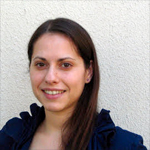
Sofía Muñoz
Anthropologist and B.A. of Performing Arts. She is currently completing her doctoral co-tutelage (CONICYT scholarship) for the Doctorate in Philosophy with a major in Aesthetics and Art Theory of Universidad de Chile and the Institute of Theater Studies of Lüdwig-Maximilians-Universität München in Germany. Her research, entitled: “Escenas de la presencia háptica”, is mainly about the philosophical notions of presence and touch, especially in contemporary dance, performance and theater linked to new technologies. She is currently working as a theory consultant for the extension and dissemination project of Emovere: Body, Sound and Movement..
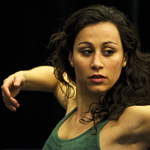
Teoma Naccarato
Teoma Naccarato, Montreal, Canada / London, UK, is a choreographer and interdisciplinary arts researcher. Her work for stage, installation, and screen explores the appropriation of surveillance and biomedical technologies as a means to complexify attitudes and approaches towards embodiment. She is interested in promiscuous encounters between performers, human and nonhuman, which produce intimacy, vulnerability, and uncertainty. Naccarato has shared choreography across Canada, the United States, South America, and Europe, with recent presentations of Experience #1167, Synchronism, X: Duet for Dancer and Kinect, and Dirt. During the past three years, Teoma has collaborated extensively with composer John MacCallum for their ongoing project: Choreography and Composition of Internal Time. Naccarato completed an MFA in Dance and Technology at the Ohio State University (OSU) in 2011, and has since enjoyed appointments as a Visiting Professor in Dance at Concordia University, Sam Houston State University, Florida State University, and OSU. She presently lives in London, where she is pursuing a practice-based PhD at the Centre for Dance Research (C-DaRE) at Coventry University.
Website: https://teomanaccarato.com/

Felipe Otondo
Felipe Otondo was born in Santiago, Chile. He studied acoustics in Chile and Sound Perception in Denmark, where he worked for several years as a musical acoustics researcher. In Denmark, he studied composition in private with composer Anders Broedsgaard. In 2008, he completed a PhD in Composition at York University in England, with composers Roger Marsh and Ambrose Field as tutors. He has created electronic music in various formats, as well as musical theater projects, interactive works and sound installations. His compositions have been performed in more than 30 countries across Europe, Asia, America and Australia, and he has won composition awards in Austria, Bulgaria, China, France, Italy, Russia and the Czech Republic. His research linked to music and musical composition has been published in important scientific journals such as Acta Acustica united with Acustica, Computer Music Journal and Organised Sound. He is currently Associate Professor at the Institute of Acoustics of Universidad Austral de Chile.
Website: http://www.otondo.net
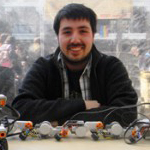
Arturo Pérez
Research Assistant at CEAR, UDP and CIAE, U. de Chile. Psychology graduate from Universidad Diego Portales. During his training, he worked as a psychologist in various areas of cognitive science and neuroscience, including embodied cognitive science. He was trained by Prof. Michael Dawson at the University of Alberta, Canada.
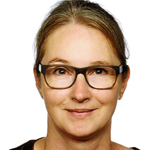
Katja Schneider
Dr. Katja Schneider, senior lecturer at the Institute for Theatre Studies at the Ludwig Maximilians University of Munich. Habilitation 2013 (“Dance and Text”). Her studies focus on dance theory and history, intermediality of contemporary dance and theatre, performance art. Current research projects: “Embodied Archives: Contextualization, Dance Aesthetics, and Democratic Agency”, “Choreographies of the Immobile in Contemporary Dance/Performance and on the Media Representation of Civil Protest” and “Amateur Cultures”. She worked as a writer and editor of several dance magazines and is the dramaturg of the Munich festival “Dance”.

Federico Schumacher
Composer, researcher and doctoral candidate in composition. Research Fellow at the Faculty of Psychology of Universidad Diego Portales. He has composed over twenty acousmatic pieces. He directed the Ai-Maako International Electroacoustic Music Festival (2008-2012). He is the author of the book “La Música Electroacústica en Chile” and currently directs the Musical Creation and Cognition Laboratory (AcusmaLab).

Paul Stapleton
Paul Stapleton is an improviser and sound artist originally from Southern California. He is currently Senior Lecturer at the Sonic Arts Research Centre where he supervises research in improvisation, performance ecosystem design and site-specific sound art. Paul performs with custom-made metallic electroacoustic sound sculptures. His album FAUNA (2013) with saxophonist Simon Rose has received acclaim from music critics such as Ken Waxman (Jazzword), Mark Corroto (All About Jazz), and Marc Medwin (New York City Jazz Record). His sound design and composition work as part of the immersive audio theatre piece Reassembled, Slightly Askew (2015) has received widespread critical praise. Reassembled has had over 100 shows in both artistic and medical contexts, and has received 5 stars in The Stage, a Hospital Club h100 Theatre & Performance Award, and 4 star reviews in The Guardian, Time Out London and the Evening Standard. Paul’s published academic writings can be found in a broad range of peer-reviewed journals, conference proceedings and books. Other major works-in-progress are the distributed instrument project Ambiguous Devices with Tom Davis, and the Translating Improvisation research group co-directed with Sara Ramshaw including an AHRC-funded project on the role of improvisation in child protection law in Northern Ireland.
Website: http://www.paulstapleton.net

